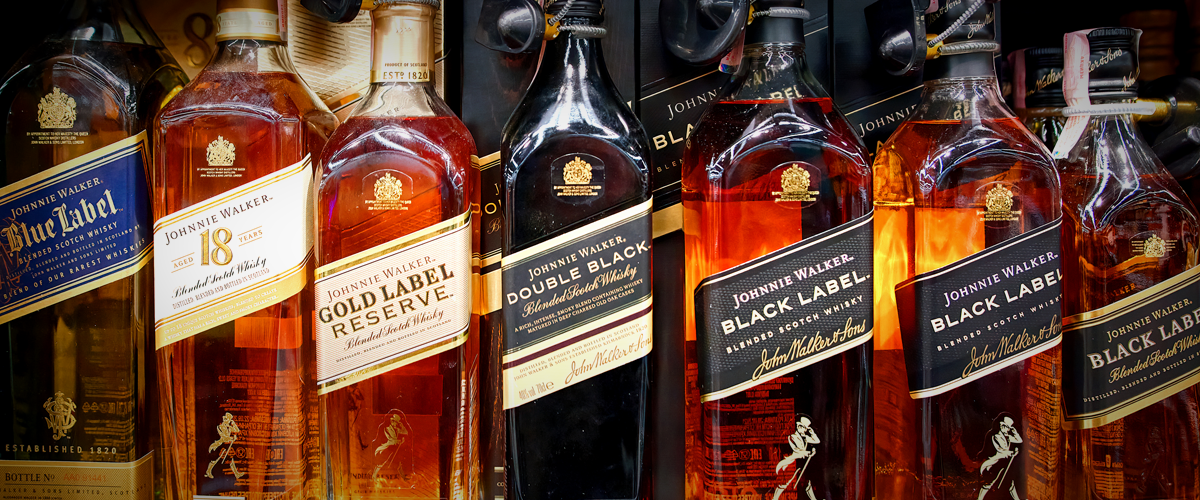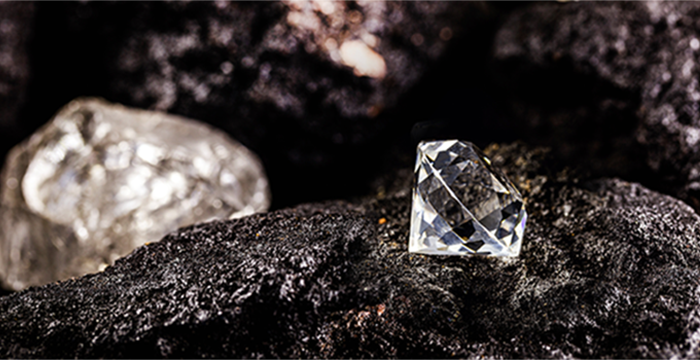The glass is half full
Jason Spilkin February 2024

You might have heard the theory about a butterfly flapping its wings in the calm today, which can stoke a storm elsewhere tomorrow. A real-world analogy is the so-called “bullwhip effect”, which describes a supply chain phenomenon whereby an initial demand shock gets amplified as resultant ripples reverberate, due to the inventory response from market participants. Whereas modern, “just in time”, supply chains are more efficient than yore, they are less robust.
Distiller, Diageo (“DGE”), was a so-called Covid beneficiary. During Covid-19, many consumers were stuck at home and sought to drown their proverbial sorrows by binging on booze, even loading up on excess stock - God forbid they should run out of the stuff! Retailers soon ran short of stock and duly placed larger orders with suppliers to replenish tight inventories.
Spirits supplies take longer to be replenished compared to other beverages, such as soda or beer. They must first be distilled, then “aged” in barrels, bottled and shipped globally from distant places of origin (e.g. Scottish Whisky and Mexican Tequila). Hence, supply chains are more susceptible to shocks.
Now that the pandemic is over and the world has “opened up”, DGE is suffering a hangover of excess inventory, resulting in a recent profit warning. This was not company specific. Most of DGE’s listed competitors have warned too, all highlighting the same phenomenon - inventory glut. DGE’s timing was more unfortunate, as the company has a new CEO. Though sell-side scepticism abounds, their common concerns tend to be this quarter, or this year’s earnings. Most acknowledge the attractive long-term trajectory yet fixate on uncertainty here and now.
Winston Churchill was inordinately fond of a wee dram, and scotch featured prominently in his daily drinking regime, starting at dawn, and finishing at dusk. We can all learn two things from Winston Churchill’s famous retort, “I may be drunk, Miss, but in the morning, I will be sober, and you will still be ugly.” The first is that a state of drunkenness (or hangover of inventory in this case) is temporary. The second is that some qualities are enduring. Churchill’s preferred scotch was none other than Johnnie Walker Black Label (produced by DGE).
DGE is a superb company. Over the decade prior to Covid, spirits’ consumption growth consistently outpaced other beverages such as beer and wine, driven by younger, more health-conscious cohorts. Indeed, spirits’ premium to peers’ rating reflected this. We expect this trend to reassert longer term after the Covid dust settles.
DGE is highly profitable and has become more so over time. Their strategy is simple yet coherent. “Premiumize” the portfolio, focus on high-end brands (Johnny Walker scotch whisky and Don Julio tequila are two examples) with wide moats and superior profit margins, whilst dispose of the commoditised product lines. DGE’s marketing nous is evident - notwithstanding they’ve spent proportionately more on marketing, they’ve been able to more than offset this by leveraging other fixed costs, such that it’s been accretive to profit margins overall.
Growth potential abounds. For example, at their recent investor day, DGE highlighted the opportunity in India, which is today DGE’s second biggest market, generating approximately 12% of group gross revenue (behind the USA which generates about30%). The addressable population is very big (over four times greater than the USA) and growing faster. Per DGE, Indian consumers entering the legal purchasing age will represent one quarter of the global growth in legal drinking population by 2030. Longer term, there is opportunity for premiumisation, considering that India’s GDP per capita is only a fraction (less than 4%) of the USA’s. India’s love of whiskey is unlike any other country; by value, it comprises more than half of all spirits sales over there. Local brands still dominate due to the sky-high import tariffs of 150%. Notwithstanding, as the middle class grows, Indians increasingly yearn for scotch, which is cannibalising the local counterfeit.
The ongoing free trade (“FTA”) negotiations between India and the UK could provide a catalyst for scotch sales to accelerate should tariffs be reduced. Indeed, India recently concluded a FTA with Australia, whereby tariffs on wine were dropped from 150% to 75% immediately and to 25% over the next decade. DGE would be a big beneficiary of any FTA, with scotch being their largest category (~23% of revenue) and India being their second biggest market. Currently, a bottle of Johnny Walker Black Label is ~46% more expensive in India compared to the UK, with most of the difference being tariffs.
Many criticised DGE’s Indian acquisition of United Spirits a decade ago due to weak profitability and a focus on value brands, which seemed incongruous with their (aforementioned) strategy. Looking back there was in fact no inconsistency, only a much longer-term horizon and that foresight is becoming evident today.
After “inventory glut-gate”, DGE was being offered at a price earnings multiple of 17 times, an absolute level not reached since 2014. On a relative basis, the company traded on par with the MSCI World Index, a level not reached since 2009.
As the saying goes, if you want to get a table at the party, you must arrive early, before the crowds show up. We are quite content to sit alone, like Nigel, No Friends, and enjoy a few warmup drinks. The night is still very young, and the glass is half full.
This communication does not constitute an investment advertisement, investment advice or an offer to transact business. The information and opinions expressed in this communication have been compiled from sources believed to be reliable. None of Credo, its directors, officers or employees accepts liability for any loss arising from the use hereof or reliance hereon or for any act or omission by any such person or makes any representations as to its accuracy and completeness. Any opinions, forecasts or estimates herein constitute a judgement as at the date of this communication. Credo Capital Limited is a company registered in England and Wales, Company No: 03681529, whose registered office is 8-12 York Gate, 100 Marylebone Road, London, NW1 5DX. Authorised and regulated by the Financial Conduct Authority (FRN:192204). © 2025. Credo Capital Limited. All rights reserved.




